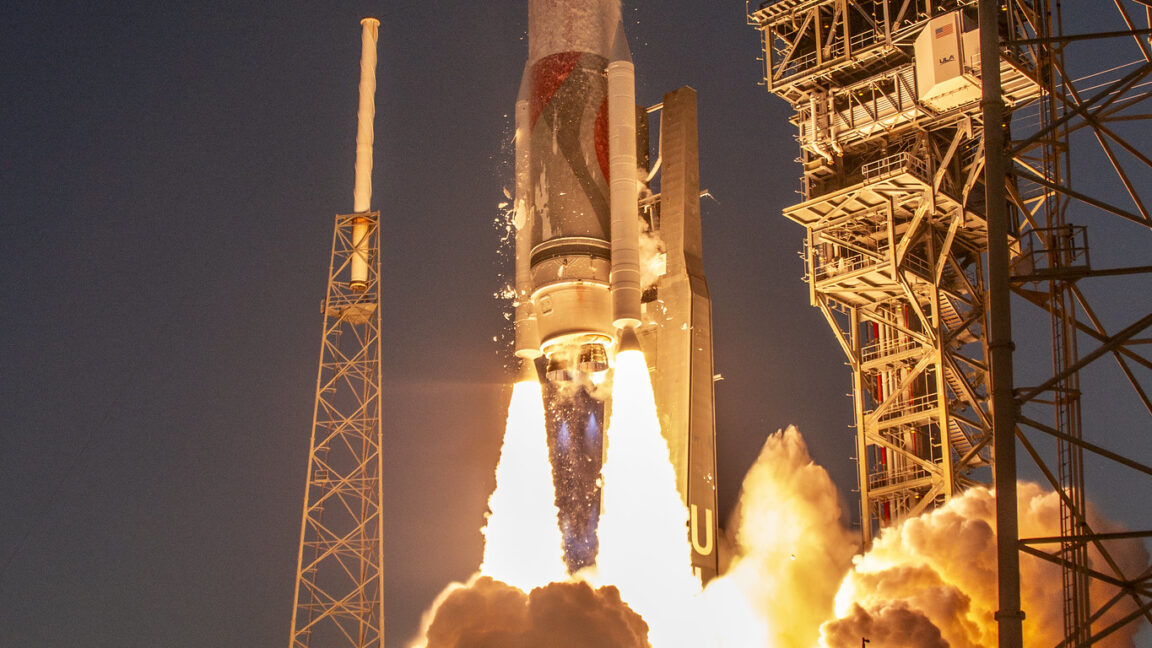With Vulcans certification, Space Force is no longer solely reliant on SpaceX
Live Long and Orbit With Vulcans certification, Space Force is no longer solely reliant on SpaceX US Space Force to United Launch Alliance: "I have been and always shall be your friend." Eric Berger Mar 26, 2025 3:57 pm | 10 ULA's second Vulcan rocket lifted off October 4, 2024. Credit: United Launch Alliance ULA's second Vulcan rocket lifted off October 4, 2024. Credit: United Launch Alliance Story textSizeSmallStandardLargeWidth *StandardWideLinksStandardOrange* Subscribers only Learn moreThe US Space Force on Wednesday announced that it has certified United Launch Alliance's Vulcan rocket to conduct national security missions."Assured access to space is a core function of the Space Force and a critical element of national security," said Brig. Gen. Panzenhagen, program executive officer for Assured Access to Space, in a news release. "Vulcan certification adds launch capacity, resiliency, and flexibility needed by our nations most critical space-based systems."The formal announcement closes a yearslong process that has seen multiple delays in the development of the Vulcan rocket, as well as two anomalies in recent years that were a further setback to certification.The first of these, an explosion on a test stand in northern Alabama during the spring of 2023, delayed the first test flight of Vulcan by several months. Then, in October 2024, during the second test flight of the rocket, a nozzle on one of the Vulcan's two side-mounted boosters failed.A cumbersome processThis nozzle issue, more than five months ago, compounded the extensive paperwork needed to certify Vulcan for the US Department of Defense's most sensitive missions. The military has several options for companies to certify their rockets depending on the number of flights completed, which could be two, three, or more. The fewer the flights, the more paperwork and review that must be done. For Vulcan, this process entailed:52 certification criteriamore than 180 discrete tasks2 certification flight demonstrations60 payload interface requirement verifications18 subsystem design and test reviews114 hardware and software auditsThat sounds like a lot of work, but at least the military's rules and regulations are straightforward and simple to navigate, right? Anyway, the certification process is complete, elevating United Launch Alliance to fly national security missions alongside SpaceX with its fleet of Falcon 9 and Falcon Heavy rockets.As for the booster anomaly issue, United Launch Alliance chief Tory Bruno recently explained that it was due to a manufacturing defect. "We have isolated the root cause and made appropriate corrective actions," he said, which were confirmed in a static-fire test of a motor at a Northrop test site in Utah in February. "So we are back continuing to fabricate hardware and, at least initially, screening for what that root cause was."Atlas up nextVulcan will not be the next rocket that the company launches, however. First up is one of the company's remaining Atlas 5 boosters, carrying Project Kuiper broadband satellites for Amazon. This launch could occur in April, although United Launch has not set a date. This will be followed by the first two Vulcan national security launches, USSF-106 and USSF-87. According to the Space Force, the first of these could occur during the coming "summer."Now that United Launch Alliance has completed the certification process, the next step is accelerating the launch cadence of the vehicle. Before this year, Bruno said the company aimed to launch two dozen rockets in 2025 (a mix of Atlases and Vulcans), but has since reduced that estimate to about a dozen. Even this number seems aspirational should Vulcan not fly its initial mission before this summer.Last year, a senior Air Force official expressed concern about the ability of United Launch Alliance to scale up its manufacturing capabilities and reach a high cadence of launches. Bruno and other company officials have said that it would be doable after the certification process is complete. Now, we're about to find out.Eric BergerSenior Space EditorEric BergerSenior Space Editor Eric Berger is the senior space editor at Ars Technica, covering everything from astronomy to private space to NASA policy, and author of two books: Liftoff, about the rise of SpaceX; and Reentry, on the development of the Falcon 9 rocket and Dragon. A certified meteorologist, Eric lives in Houston. 10 Comments




